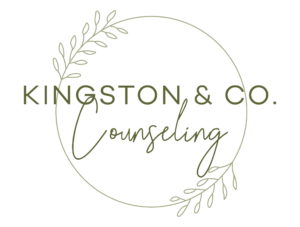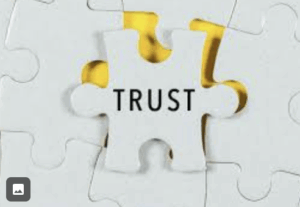Relationships are filled with ups and downs, and every couple experiences challenges at some point. While it’s natural to face disagreements and conflicts, sometimes issues become overwhelming and start to affect the health and happiness of the relationship. When difficulties persist, many couples wonder: Is it time to seek therapy? In this blog post, we’ll explore how to recognize the signs that couples therapy may be helpful, why it can be beneficial, and how therapy can support your relationship in finding its way back to a healthier and more connected place.
Common Signs You May Benefit from Couples Therapy
Couples therapy isn’t just for relationships on the verge of breaking up. In fact, many couples seek therapy to improve communication, resolve ongoing conflicts, or simply strengthen their emotional bond. Here are some common signs that it might be time to consider professional help:
1. Communication Breakdown
Healthy communication is the foundation of any strong relationship. If you and your partner find that conversations frequently lead to misunderstandings, frustration, or arguments, therapy may help. Common signs of communication breakdown include:
- Frequent Misunderstandings: Even seemingly simple conversations often lead to confusion or conflict.
- Avoiding Important Discussions: You or your partner avoid talking about sensitive topics, leading to bottled-up feelings and resentment.
- Harsh or Critical Tone: Conversations have become more combative, with criticism, defensiveness, or disrespect becoming the norm. Couples therapy can help you develop better communication skills, learn to express emotions effectively, and listen more empathetically.
2. Recurring Conflicts
All couples argue from time to time, but if the same issues keep coming up without resolution, it may be time to seek help. Recurring conflicts about finances, intimacy, parenting, or household responsibilities can create a cycle of frustration that feels impossible to break. If you find yourselves constantly revisiting the same arguments, therapy can help you uncover the underlying issues and find ways to resolve them in a healthier, more productive manner.
3. Emotional Distance
A strong relationship thrives on emotional connection, trust, and closeness. If you and your partner are feeling emotionally distant or disconnected, this could be a sign that deeper issues are affecting your bond. Emotional distance can manifest in several ways:
- Lack of Intimacy: You no longer share affection, physical closeness, or spend quality time together.
- Withholding Emotions: You or your partner feel uncomfortable sharing feelings, leading to a sense of isolation within the relationship.
- Growing Apart: You feel like roommates rather than romantic partners, with little emotional or personal connection. Couples therapy provides a safe space to explore why this distance has developed and how you can reconnect emotionally.
4. Trust Issues
Trust is essential to a healthy relationship. If trust has been broken due to infidelity, dishonesty, or a breach of boundaries, rebuilding that trust can be incredibly challenging without professional support. Even if trust hasn’t been fully broken, lingering doubts or insecurities can harm the relationship. Therapy can help couples address trust issues, explore the root causes of mistrust, and work toward forgiveness and healing.
5. Significant Life Changes
Major life events such as the birth of a child, moving to a new city, career changes, or the loss of a loved one can place significant stress on a relationship. These changes can shift dynamics, create new challenges, and leave couples feeling overwhelmed. If you find that a significant life change has strained your relationship, couples therapy can help you navigate the transition and strengthen your bond.
6. Difficulty Managing Stress Together
When one or both partners are dealing with stress, whether from work, health, or personal life, it can affect how you relate to each other. If stress is leading to irritability, tension, or withdrawal in your relationship, therapy can help both partners manage their stress and maintain a supportive partnership. Learning to navigate stress together can prevent external factors from damaging your relationship.
7. Lack of Intimacy or Sexual Issues
Intimacy plays a vital role in romantic relationships. If you’re experiencing a lack of physical or emotional intimacy, or if sexual issues are creating tension, therapy can help. Issues such as mismatched sexual desire, performance anxiety, or feelings of rejection can be difficult to talk about, but therapy provides a space for open, non-judgmental conversations. With the guidance of a therapist, couples can explore ways to restore closeness and intimacy.
8. You’re Considering Separation
If you or your partner have begun thinking about or discussing separation or divorce, it’s a sign that professional support may be needed. Couples therapy can offer one last effort to work through your issues before deciding to part ways. Even if you ultimately decide that separation is the best option, therapy can help ensure that the decision is made with clarity and respect for both parties involved.
How Couples Therapy Can Help
Couples therapy offers many benefits for partners who are struggling, but it’s also valuable for couples who want to improve their relationship before problems arise. Here’s how therapy can help:
1. Improved Communication Skills
One of the main focuses of couples therapy is improving communication. A therapist can help you learn how to express your needs, feelings, and concerns in a way that is respectful and productive. By practicing active listening, empathy, and effective communication, you can resolve conflicts with less emotional intensity and more understanding.
2. Conflict Resolution
Through therapy, couples learn how to address conflicts in a healthy way. Instead of escalating arguments or avoiding difficult topics, you’ll develop tools to handle disagreements constructively. Therapy can help you identify the patterns that contribute to conflict and offer strategies for resolving disputes without causing harm to the relationship.
3. Restoring Emotional and Physical Intimacy
Therapists provide a safe space for couples to talk openly about their needs for intimacy, both emotional and physical. By exploring what’s blocking intimacy and learning how to reconnect, therapy helps couples rebuild their bond. Whether you’re struggling with physical intimacy or emotional closeness, therapy can guide you toward a deeper connection.
4. Rebuilding Trust
For couples dealing with trust issues, therapy can help identify the underlying reasons behind the betrayal or lack of trust. Through open communication and guided exercises, couples can begin the process of rebuilding trust and healing from past wounds.
5. Providing a Safe Space for Vulnerability
Many couples find it difficult to express vulnerability in their relationship, especially when emotions are high or conflicts are frequent. Therapy provides a neutral, supportive environment where both partners can express their feelings without fear of judgment. This openness fosters a stronger emotional connection and helps partners feel heard and validated.
When to Seek Couples Therapy: Early Intervention Is Key
Many couples wait until their relationship is in serious trouble before seeking therapy. However, the earlier you seek help, the easier it is to resolve issues before they become deeply ingrained patterns. Therapy is not just a last resort—it’s a proactive step that can help strengthen your relationship before problems escalate.
If you notice recurring issues, feelings of disconnection, or increased conflict, it’s a good idea to reach out to a therapist. By addressing problems early, you can avoid further damage to your relationship and build a stronger foundation for the future.
Conclusion
Deciding to seek couples therapy is not a sign of failure—it’s a courageous and positive step toward improving your relationship. Whether you’re dealing with communication issues, trust problems, or simply feeling emotionally distant, therapy can provide valuable insights and tools to help you and your partner reconnect. Remember, it’s never too early (or too late) to seek support.
At Kingston & Co Counseling, we are committed to helping couples build healthier, more fulfilling relationships. If you’re ready to take the first step toward healing and growth, contact us to learn more about our couples therapy services. We’re here to support you in navigating your relationship challenges and creating a stronger connection with your partner.







